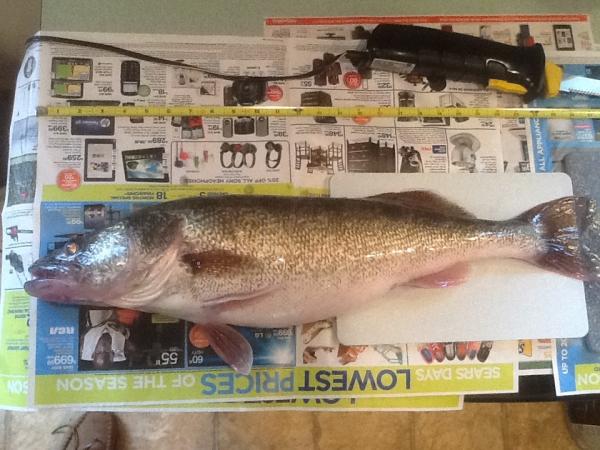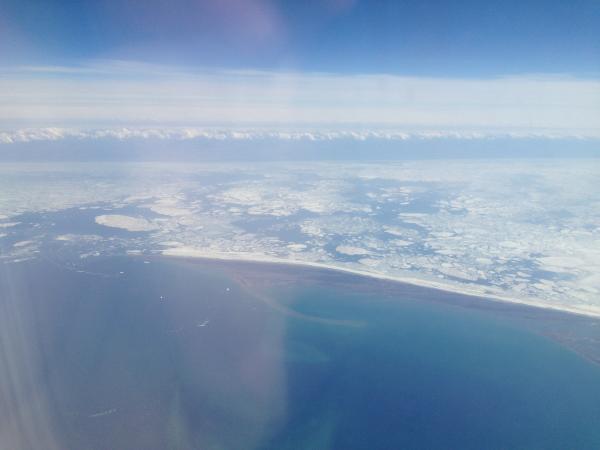

jimski2
Members-
Posts
3,145 -
Joined
-
Last visited
Content Type
Profiles
Forums
Events
Gallery
Store
Everything posted by jimski2
-
New York Sea Grant's Annual meeting will be held Thursday, April 10, 2014 from 7:00 to 9:00 PM at the Southtowns Walleye Club House, 5895 Southwestern Boulevard, Hamburg, NY. Featured speakers will be Don Einhouse, NYDEC Unit leader on the status of the Lake Erie Fish Community. Also Microplastics, Sturgeon and Toxic Algae will be presented. Club memberships should be available along with walleye and perch contest entry forms.
-
-
After having a couple "bad days" the separate tanks are the best idea. I do not use the water separator fuel filter as my six gallon tanks I use now after abandoning my built in tank. They can be cleaned simply by turning them upside down to remove the water and other critters. The translucent plastic if held up to the sun will show dirt and water can be observed by looking in the fill port. The seals on the hose limit water into the tank with the seals on the hoses. Built in tanks have open vents that allow high humidity air in the harbor to enter the tank every night when the fuel contracts due to cold air conditions. I close the vent valve on the tanks after use and one trip I failed to open the valve and when the engine lugged down I discovered my tank shrank down to half its size from the fuel pumps vacuum pressure. After opening the vent it popped back up to its original size. With the ethanol fuel we buy at the cheapest source, the time held in a tank is lessened for the alcohol to vaporize out of solution.
-
-
-
Adding a "T" to your main engine fuel line may work for a time. Then someday your kicker engine fails to start. Before taking it back to the repair guy, check that the kicker engine fuel pump is not sucking air through the main engine connector fitting. I ended up using a separate fuel line and tank for my kicker. This will save yourself a buck.
-
http://smarttroll.com/index.php?main_page=page&id=5 Smaller, thinner uses a radio signal, not the cable
-
-
A tackle shop with most sought "local knowledge" and with stock supplied by local demand not some purchasing agent who probably does not fish at all as the big box stores have.
-
Studies in Lake Huron have shown Kings travel from six hundred foot down to the surface several times a day. We do not see these fish on our graphs but some skippers there are running lines set to three hundred foot deep. A great story on these conditions is in the latest "Great Lakes Angler" magazine.
-
Trickle chargers overcharge your battery causing bubbling and a loss of fluid. This exposes the plates and causes more damage. A regulator is needed to control the maximum voltage and short minimum pulses to keep the battery at top condition. No distilled water will need to be added. Make sure your charger has three stages to top off and maintain your battery. My boat battery has been on charge for four years now year round and has never needed distilled water and is always ready to go twelve months a year.
-
Your graph shows fish in certain depth zones. Many fish are deeper and do not show up because the frequency and ping speed is set for a higher depth. Putting more rigger cable out keeps your weights up high and after a certain amount of cable and probes are out along with your lures, the depth reached is at its maximum.
-
80% of Lake Erie's walleye spawn in Ohio waters. Things are now starting for the jig bite around the power plant and river fishing. No closed season there like in New York.
-
-
-
We pulled the float level and siphoned the gasoline out with a hose through the drain plug. Then we used rags on a metal coat hanger to wipe the inside of the rest of the gasoline, gunk and water. This is dangerous but it worked. Sent from my iPhone using Lake Ontario United mobile app
-
Rig them up direct to your battery. Sent from my iPhone using Lake Ontario United mobile app
-
Walleyes are boat shy so use planer boards to keep your lures away from the boats track. Even in 70 foot of water, the boat spooks the fish. Sent from my iPhone using Lake Ontario United mobile app
-
Water temperature is key to fishing walleye in Lake Erie. From 53 degrees to 78 degrees you move from near shore and the eastern to deeper water past west of the cattaraugis creek Sent from my iPhone using Lake Ontario United mobile app
-
This has been the biggest ice formation on Lake Erie in years. Another factor is surface ice area. After a strong southwest blow, the ice packs up to many feet deep and this will be a long year for cold Lake Erie waters to flow into Lake Ontario around the Canals and Niagara River.Watch the shoreline water temperatures for areas to start your spring season. Look for forty two degree waters to start your year. Be aware that thirty nine degree waters are on the bottom of the lake and they keep the fish there until the shore waters warm up.
-
Lake Erie is breaking up west of Point Breeze, the end is coming soon.
-
When I used my old x16 paper graph if I changed the ping speed and frequency I would indicate salmon at depths over 150 foot that never showed up on the regular screen. Play around with the frequency and ping speeds if you can.
-

What's up with prices at Gander Mountain?
jimski2 replied to Trout Bum's topic in Open Lake Discussion
When I question the sales people at all the big box sporting goods stores about a lure that is in demand locally, the answers are the same everywhere. "We have no input into the lures on sale there. Purchasing is done by some unknown deity somewhere in the corporate ladder who apparently has no local demand knowledge." -
Lake Erie ice is over two foot solid this year. The parking lot is jammed with vehicles daily. Travel to depths over fifty five feet of water over the mud bottom results in great catches of large perch. ATV's are checked for registrations, insurance, tow bars regularly. Check for reports on Ice Shanty New York Lakes and Ice Fishing New York. Figure on travelling five miles each way to reach the perch grounds. Compass and GPS are needed in whiteouts.
-
My 9.9 hp Honda lugs down when my rigger is cranking up. The rigger uses a heavy load on your battery.


